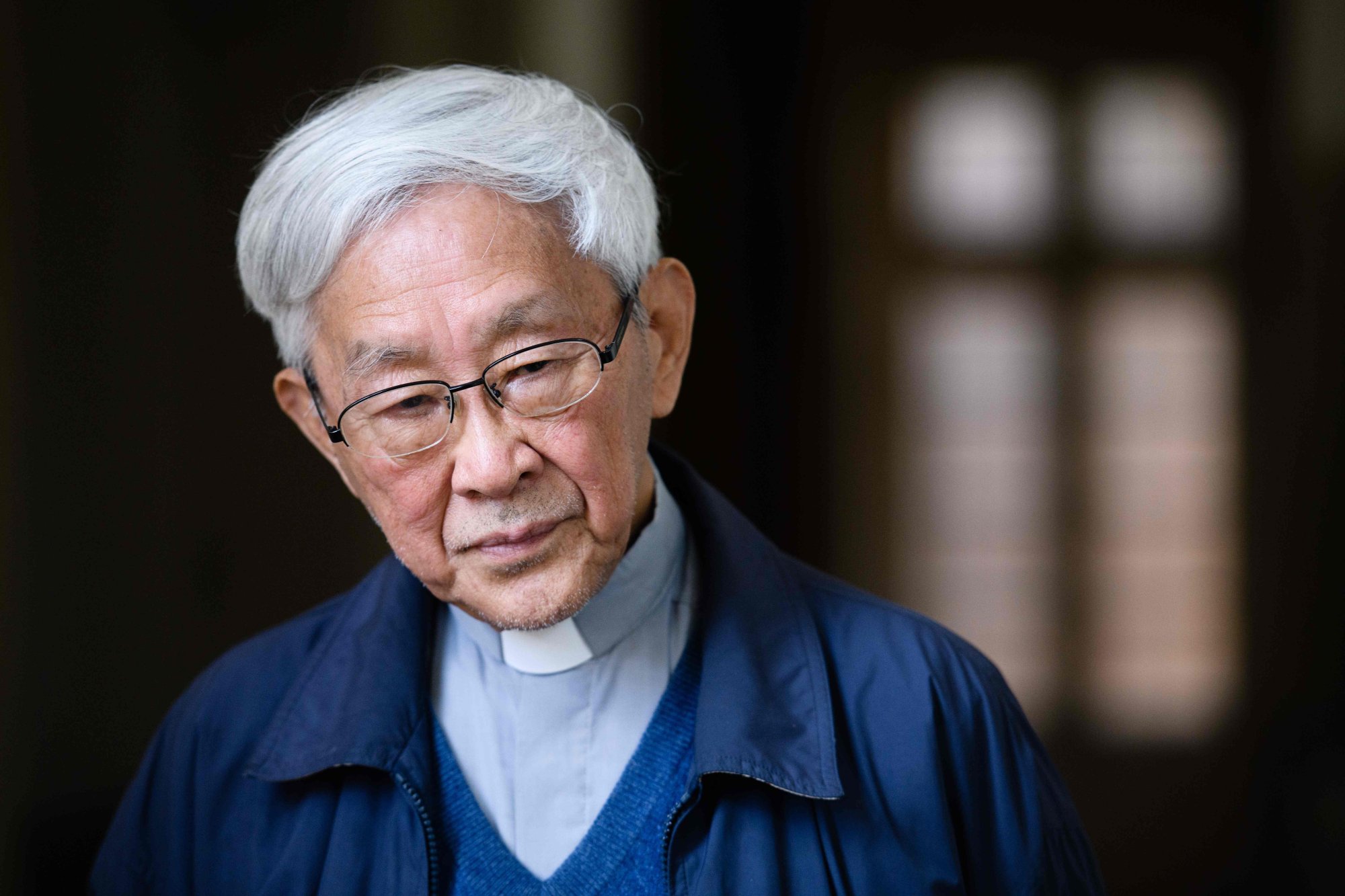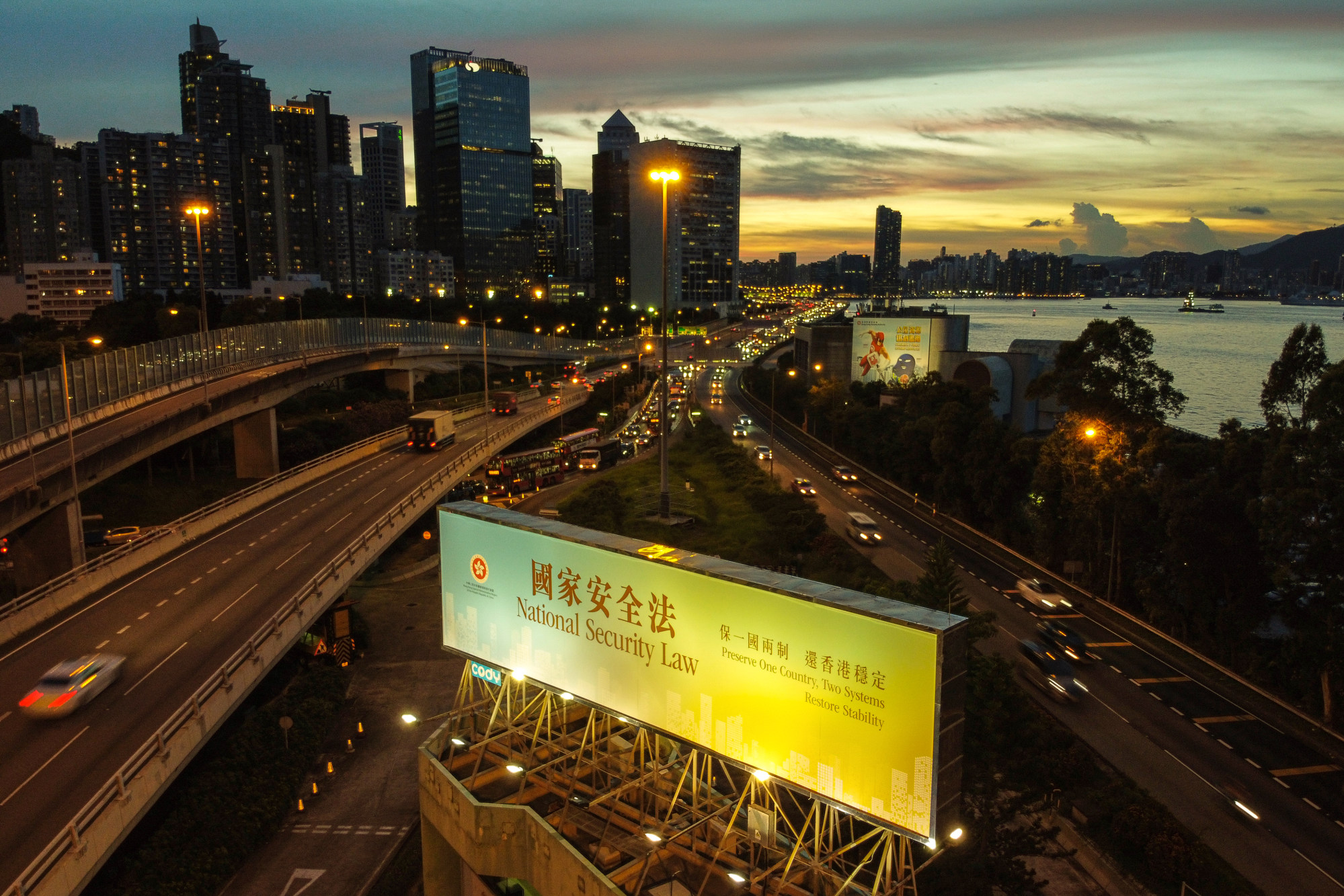
Hong Kong security minister says failure to take enforcement action against suspect on religious grounds against Vatican’s idea of justice
- Arrest of Cardinal Joseph Zen was in accordance with the law and had nothing to do with his role in the church, says security chief Chris Tang
- Not acting in accordance with the law would go against Vatican’s principle of justice, Tang adds
Refusing to arrest a suspect because of his religion or role in the church goes against the principles of justice preached by the Vatican, Hong Kong’s security minister has said in response to criticism over the arrest of a Catholic cardinal.
National security police earlier this month arrested 90-year-old Cardinal Joseph Zen Ze-kiun and four others over their roles in the now-defunct 612 Humanitarian Relief Fund, drawing concern from the Vatican, which said it was following the situation with “extreme attention”. The five trustees of the fund were accused of colluding with foreign forces.

“To my understanding, the Vatican is a place to pursue justice and peace. If we did not act in accordance with the law because of one’s role in the Holy See, then I think it would actually breach the Vatican’s principle of justice,” said Secretary for Security Chris Tang Ping-keung in an exclusive interview with the Post.
“So we acted fairly on evidence and the law … We arrested the mentioned suspect based on the things he did. It had nothing to do with his role in the church.”
Tang described the criticism from foreign countries on the arrests as a “classic smearing campaign” against the city’s efforts in safeguarding national security. The United States and European Union slammed the detentions as attempts to stifle dissent, but Beijing dismissed the criticism and told the governments to end their “foolish political show”.
Tang said authorities were looking into whether the fund, set up to provide financial help to those involved in the anti-government protests of 2019, had violated the law regardless of the suspects’ background and religion.
The National Security Department has arrested 186 people and prosecuted 115 since the legislation came into force on June 30, 2020. The law bans acts of secession, subversion, terrorism and collusion with foreign forces, with offenders facing up to life imprisonment. The courts have convicted 10 individuals and given them jail sentences as long as nine years.
Although the law had clamped down on the activities of “state-level players” and their agents in Hong Kong, Tang said foreign forces still eyed every chance to suppress China’s growth and harm national security.
Hong Kong security chief warns UK on ‘double standards’ over new security bill
Tang cited the example of the United Kingdom’s new national security bill, which he said was “much harsher than ours”. The UK showed its “double standards” as it had no problems with its new security bill, but “smears everything about China including Hong Kong’s lawful chief executive election”, he added.
Tang did not confirm reports of whether Hong Kong would block the public’s access to Telegram. A source last week said the city’s privacy watchdog was considering doing so because of the messaging app’s use in unrestrained acts of doxxing.
The minister did not reveal whether he was involved in the decision-making process and only said he supported legal and feasible means to tackle doxxing.

Tang, who became security chief in June last year, said tackling the city’s fifth Covid-19 wave was one of the challenges of his new role. At one point, manpower in law enforcement agencies was severely stretched, with as much as 20 per cent of staff under quarantine after being infected with Covid-19 or identified as close contacts.
Nearly 4,600 staff were assigned to an anti-epidemic task force within a short period of time in February and helped manage 27 community isolation facilities.
The task force has since been downsized, with only a few hundred staff members remaining, now that the city’s Covid-19 situation has eased and most of the isolation facilities have been put on standby.
Tang said the bureau had mapped out contingency plans for a potential sixth wave of infections and that facilities could resume operation within 24 hours if needed.
Hongkongers with ties to US-backed group could risk censure, analysts warn
In March, the Fire Services Department set up a hotline to assist Covid-19 patients quarantined at community isolation facilities. Tang said he wished the hotline could have been launched earlier to help more people in need.
Looking back on his year in the post, Tang said: “I can see how issues are handled at the government level and have had chances to take part in tasks outside the security domain. It has truly been an eye-opening experience to me.”

